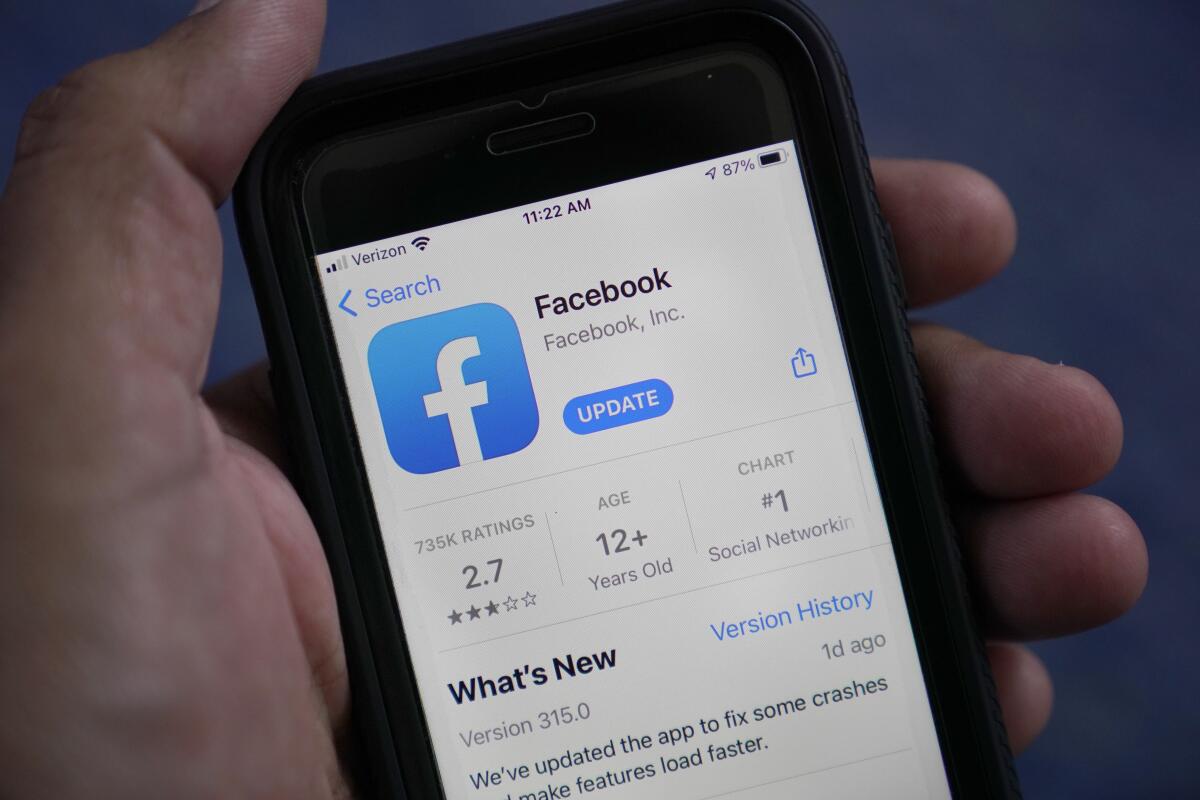Opinion: Big Tech is broken. But can Congress fix it?

The internet has been a great unifier, enabling people to join others around the globe in pursuit of common interests. And now, the internet’s largest platform operators — Facebook, Amazon, Apple and Google — are uniting Democrats and Republicans on the House antitrust subcommittee in pursuit of their common interest: reining in Big Tech’s power.
Members of the subcommittee on Friday introduced five bills, each with bipartisan co-sponsors, that aim to bar platform operators from using those platforms to benefit their other businesses and to increase competition in their markets. They zero in on some of the biggest problems these companies pose, but their proposed fixes are partial at best — not surprising, given that they look at the companies through the lens of antitrust policy.
For example, nothing in the bills would address the thorny speech-related issues raised by lawmakers on both sides of the aisle — the complaints by Republicans that the platforms are censoring conservatives (a bias that some researchers have refuted) and by Democrats that the platforms aren’t doing enough to stop the spread of misinformation and hate speech. Nor would any of the bills provide the kind of privacy protections that California provides and that internet users throughout the country need.
Nevertheless, each measure tees up a debate well worth having, and it’s a shame that bipartisan bills like these are so rare on issues of this magnitude. Antitrust in particular should be a natural area of agreement between the parties — generally speaking, Republicans want markets to work, and Democrats don’t like Big Anything. It was the Reagan administration‘s Justice Department that broke up Ma Bell, after all. But the GOP has been conflicted, and in recent decades Republican administrations pulled back on antitrust enforcement.
Not that Democratic administrations have been much more effective when it comes to stopping Big Tech companies from buying up potential competitors — witness how the Obama administration green-lit Facebook’s purchases of Instagram and WhatsApp.
For my money, the most important of the five bills is the Augmenting Compatibility and Competition by Enabling Service Switching Act because it could open the door to a flood of innovation in the fields now dominated by Big Tech companies. As Cory Doctorow has argued, the main barrier to competing with Facebook and other dominant social media companies isn’t their scale, it’s the inability to stay linked to the friends you’ve assembled on those networks when you move to a different service. The bill would require Big Tech platforms to enable users to securely transfer their data to competing platforms.
Referring to Facebook as “FB” in a post Friday about European regulations, Doctorow wrote, “With low switching costs, much of FB’s monopoly protection evaporates. Lots of people hate FB, and FB knows it. You’re on FB because your friends are there. Your friends are there because you’re there. You’ve taken each other hostage, and FB benefits. With low switching costs, you could leave FB — but not your friends. The kill zone disappears. All we need is interoperability.”
While the bill would require that data transfers be secure, however, that’s a poor substitute for giving consumers privacy rights that protect their personal information. If lawmakers are serious about increasing competition, enacting a privacy bill of rights for internet users should be a prerequisite.
Two other bills — the American Innovation and Choice Online Act and the Ending Platform Monopolies Act — try to address a significant anticompetitive problem that the subcommittee reported last year. They would bar Big Tech companies from leveraging their services to advance their own products and interests — potentially forcing companies to spin off some of their holdings. The prohibitions could reach such things as Google’s use of its search results to favor its Google’s services over its rivals’ (think Yelp and Kayak) and Amazon’s use of data generated by third-party sellers in the Amazon marketplace to influence the products it develops under its own brand.
The last two bills would expand the reach and enforcement of federal antitrust law.
The Platform Competition and Opportunity Act would bar Big Tech companies from snapping up nascent competitive threats, as Facebook famously did with Instagram in 2012. That’s an intriguing idea, but it’s incredibly expansive. Big Tech companies would not only be barred from acquiring businesses that could reduce competition in their current markets but also ones that could help them defend their current market dominance. That could conceivably bar Big Tech companies from branching into wholly new fields.
And the Merger Filing Fee Modernization Act would require companies seeking approval for mergers and acquisitions to pay higher fees to the Federal Trade Commission, while providing more money to antitrust enforcers at the FTC and the Department of Justice.
Lawmakers have been sounding the alarm about alleged anticompetitive activity by Big Tech companies for years. Now there are some specific proposals to respond to those complaints. They’re a long way from becoming law, but at least the first real step on that journey has been taken.
More to Read
A cure for the common opinion
Get thought-provoking perspectives with our weekly newsletter.
You may occasionally receive promotional content from the Los Angeles Times.











